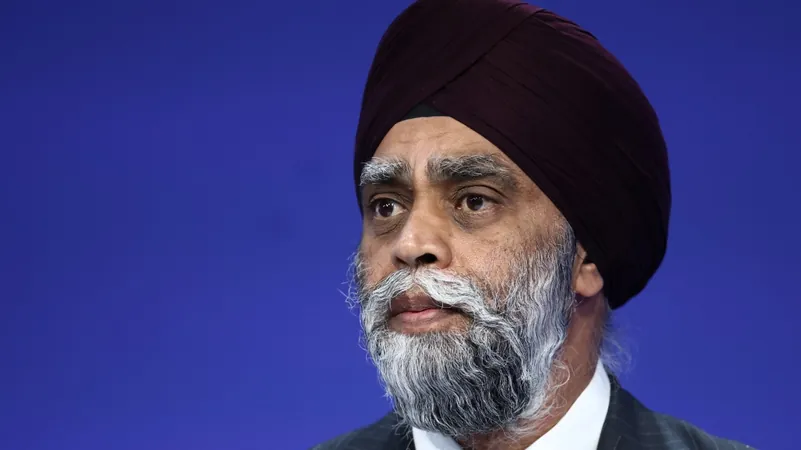
Federal Minister Returns Controversial Taxpayer-Funded Tickets to Taylor Swift's Eras Tour Amid Public Backlash
2024-12-10
Author: Michael
Overview
In an unexpected turn of events, federal cabinet minister Harjit Sajjan has faced considerable scrutiny after initially accepting taxpayer-funded tickets to Taylor Swift's highly-anticipated Eras Tour. This past weekend, as tens of thousands of Swifties flooded Vancouver's BC Place for the grand finale of the record-breaking tour, Sajjan, the minister for the Pacific Economic Development Agency of Canada, found himself at the center of controversy.
Public Backlash
Just days before the final shows, reports emerged that Sajjan had accepted complimentary tickets intended for stakeholders, a move that quickly sparked public backlash. Critics questioned the appropriateness of a government official using taxpayer resources for personal entertainment. Responding to the growing criticism, Sajjan made the decision to decline the tickets, as confirmed in an emailed statement from his office on Monday.
Sajjan's Statement
Initially announcing plans to attend the concert with his daughter, Sajjan's revised statement clarified that, after careful consideration and discussions surrounding the ethical implications of accepting such offers, he formally declined the tickets on Friday, ultimately not attending the performances.
PavCo's Clarification
PavCo, the agency responsible for managing BC Place, clarified that the tickets were offered as part of a regular protocol to elected officials and stakeholders. However, they noted that Sajjan was the only politician to accept the tickets.
Ethical Considerations
Sajjan’s office also emphasized that he had sought and received clearance from the federal ethics commissioner prior to accepting the tickets. As part of that arrangement, Sajjan was invited to make a charitable donation to the Greater Vancouver Food Bank, a proposal he embraced. His office confirmed that he made a donation totaling $1,500, which stands as a gesture of goodwill amidst the controversy.
Conclusion
This incident has not only sparked discussions about the appropriateness of using public resources for entertainment but also raised questions about the responsibilities of elected officials in maintaining public trust. As reactions continue to unfold, this story serves as a stark reminder of the scrutiny public figures often face in the age of social media, where every decision is amplified and debated. Whether this incident will have lasting implications for Sajjan’s political career remains to be seen, but the spotlight on government officials’ use of taxpayer funds has certainly intensified.









 Brasil (PT)
Brasil (PT)
 Canada (EN)
Canada (EN)
 Chile (ES)
Chile (ES)
 España (ES)
España (ES)
 France (FR)
France (FR)
 Hong Kong (EN)
Hong Kong (EN)
 Italia (IT)
Italia (IT)
 日本 (JA)
日本 (JA)
 Magyarország (HU)
Magyarország (HU)
 Norge (NO)
Norge (NO)
 Polska (PL)
Polska (PL)
 Schweiz (DE)
Schweiz (DE)
 Singapore (EN)
Singapore (EN)
 Sverige (SV)
Sverige (SV)
 Suomi (FI)
Suomi (FI)
 Türkiye (TR)
Türkiye (TR)